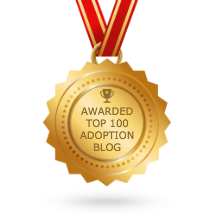Editor’s note: It’s National Adoption Awareness Month (NAAM). How will you #FlipTheScript?

Photo: david pacey/Flickr
I first spoke with Steve, a 53-year-old New Jersey adoptee, in February, soon after he received his original birth certificate thanks to a change in state law in New Jersey. *
He’d just found his birth mother and was bubbling over with excitement. “I’ve got all sorts of feelings, worries and aspirations running around in my head!” he told me then. I remember thinking as he rattled though his story, that his feet likely hadn’t touched the floor since he opened the envelope with his birth certificate in it.
Steve said finding his mother meant a great deal to him — he wanted more than anything to thank her for the good life he had. But it also meant a chance to figure out who he is. Growing up adopted, he said, always meant feeling different and out of step. He longed to understand his identity and know that “there are other people out there like me.”
He connected with his birth mother a few weeks after our call, and emailed to tell me how thrilled he is that they are forging a relationship.
This past Friday, Steve called me again, this time in search of a sounding board. Through information his birth mother gave him, he had found his birth father and was again overcome with excitement. The photos Steve found online of his birth dad show that he bears an uncanny resemblance to Steve’s 14-year-old son. He was eager to know more, but hadn’t yet tried to contact the man, in part because, based on things his birth mother had said, Steve feared his birth father didn’t know of his existence.
“I have no one else to talk to about this and I need your advice,” Steve told me. “What should I do? Should I call him?”
Remembering our February conversation, and the pain then in Steve’s voice, I urged him to make the call.
“If you don’t call, you’ll sentence yourself to a lifetime of wondering,” I said, adding, “You don’t need someone’s permission to know who you are.”
It seemed to be the answer Steve was hoping for. We talked candidly about the possible outcomes: He might face rejection, and that would be difficult and emotional. But he might also finally have the answers he’s yearned for — what his ethnic background is, who he looks like, where his talents and thought processes come from, what his medical history is.
We ended the conversation with Steve promising to tell me what transpires.
Afterward, I pulled out my notes from our first conversation and realized that Steve hadn’t needed my advice at all. He already had the answer. Here’s what he told me when we spoke in February: “Your history defines who you are. You need to know it. What I find out as a result of searching is going to help me one way or another. When I’m dying I don’t want to be thinking I should have looked for my family. ”
And yet, Steve felt this week, as a great many adoptees do, that he needed to ask someone’s permission to stand up for himself.
Worse? He felt so alone in trying to decide what to do that he called me — a stranger he’d met one time on the telephone –for advice.
I hung up the phone both sad and angry. Yes, we’re making progress. After all, a change in New Jersey’s law had given Steve key information about who he is. But there’s so much more to do to flesh out that “adoption is wonderful” script.
Wanting to know who you are is a normal, valid human emotion. When will we ever get to a place where adoptees — the people at the center of adoption — feel that it’s OK to put their needs first?
When will adoptees finally be able to speak out about their experiences and know they will be heard?
—
* In all but nine states in the U.S, adoptees are not allowed unrestricted access to their original birth certificates. Those documents were sealed at the time of the adoption and replaced with revised birth certificates that list an adoptees’ adoptive parents rather than the people who conceived them. This policy was meant originally to spare adoptees the stigma of illegitimacy but in practice serves to keep adoptees in the dark about their origins, ethnicity and medical history. Today the quest to provide all adoptees access to original birth certificates is a flashpoint in the adoption reform movement.



Discussion
Trackbacks/Pingbacks
Pingback: Let’s stop | PSYCHE CAFE - December 8, 2017